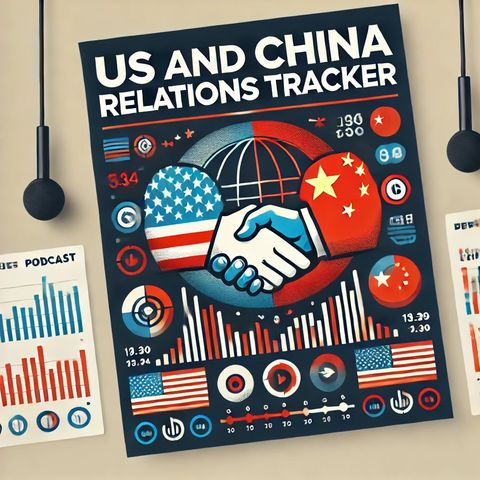"Navigating the Geopolitical Tightrope: Insights into the US-China-South Korea Trilateral Relationship"

Sign up for free
Listen to this episode and many more. Enjoy the best podcasts on Spreaker!
Download and listen anywhere
Download your favorite episodes and enjoy them, wherever you are! Sign up or log in now to access offline listening.
Description
In an era marked by rapid geopolitical shifts, the relations between the US, China, and South Korea function as a significant axis in global diplomacy. A recent webinar on China...
show moreOne of the central themes of the webinar was China's evolving foreign policy under the leadership of President Xi Jinping. The Chinese government has been increasingly assertive on the global stage, seeking to expand its influence through initiatives such as the Belt and Road Initiative (BRI) and its comprehensive military modernization. This assertiveness has created ripples across the Asia-Pacific, particularly affecting the strategic calculations of the US and its allies, including South Korea.
For the United States, maintaining a stable and secure alliance with South Korea is critical, especially in light of the ongoing North Korean threat. The US has a considerable military presence in South Korea and has consistently emphasized the importance of this alliance in preserving regional stability. However, China's growing influence poses a delicate balance. The US must navigate its regional strategies without antagonizing China to the point of conflict, all while reassuring South Korea of its unwavering commitment to their partnership.
South Korea finds itself in a particularly precarious position. Geographically and economically, South Korea is deeply intertwined with both the US and China. China is South Korea's largest trading partner, while the US is a vital security ally. This dual dependency necessitates a careful diplomatic tightrope walk for Seoul. South Korea's government has expressed a desire to avoid being forced to choose sides, instead advocating for a balanced approach that allows it to maintain strong, independent relations with both superpowers.
The webinar also highlighted the role of North Korea in this tripartite relationship. China's longstanding relationship with North Korea and its strategic interests in the Korean Peninsula add a layer of complexity to US-China-South Korea relations. While the US and South Korea push for denuclearization, China's priority lies in maintaining stability and preventing a regime collapse that could result in a refugee crisis on its borders.
Additionally, participants examined economic interdependencies between the three nations. China's economic rise has led to deeper economic bonds with South Korea, often resulting in South Korean companies having significant stakes in the Chinese market. Conversely, the US-South Korea Free Trade Agreement has fortified economic ties between Washington and Seoul. Balancing these economic interests while mitigating potential conflicts remains a challenging aspect of South Korea's foreign policy.
Human rights and democratic values were also pointed out as areas where divergences occur. The US often raises concerns about China's human rights record and its approach to governance, which contrasts sharply with the liberal democratic values shared by the US and South Korea. These ideological differences could lead to future friction, but they also highlight the importance of ongoing dialogue and diplomatic engagement.
In summary, the US-China-South Korea relationship is a multifaceted and dynamic triad, shaped by military, economic, and ideological factors. The recent webinar underscored the need for astute diplomacy and collaborative efforts to manage tensions and foster stability in the region. As China continues to assert its presence, both the US and South Korea must navigate this changing landscape with strategic prudence and a commitment to maintaining robust alliances.
Information
| Author | QP-4 |
| Organization | William Corbin |
| Website | - |
| Tags |
Copyright 2024 - Spreaker Inc. an iHeartMedia Company
